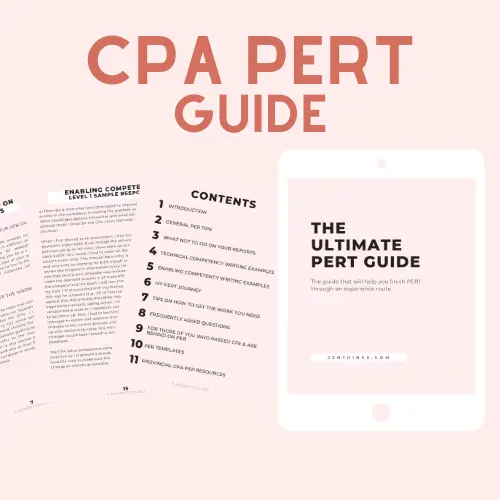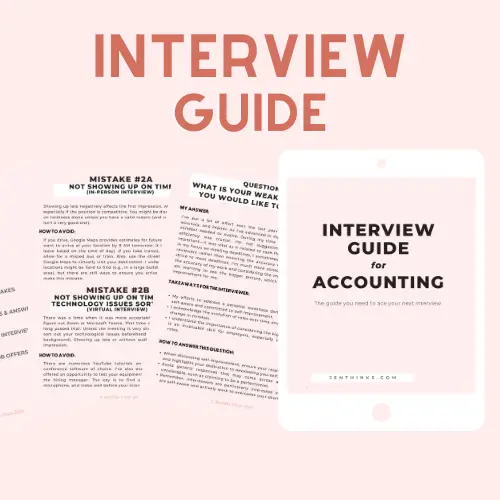I recently attended another CPA PEP Talk hosted by CPA Alberta. This time, current and future CFE writers got to hear from a panel of four successful CFE writers who shared what worked for them. Some of them passed as first-time writers and some did after an unsuccessful attempt. I learned something new and reaffirmed my beliefs in others.
RELATED POST – CPA Capstone 1 – Tips on How to Do Well
For those of you who couldn’t make the event or didn’t know about it (follow them on Instagram so you don’t miss out again), I am sharing a mix of responses from the panellists at the CPA PEP Talk and what I have learned from my experience with PEP modules. It is important to note that some of the strategies might not work for all of you so start trial and error as early as you can.
Read all of my CPA CFE posts here
Should I Practice Writing The Cases Under Exam Condition?
Yes. In fact, you should always practice writing your cases under exam conditions. Personally, I haven’t done that for every single case I have written for PEP. However, I would do that for a brand new case or two (the exam practice cases provided by CPA or paid ones from Densmore would be a good option). Doing so helped me understand exactly where I stand. Was I running out of time? If so, why? Was my technical weak or I spent too much time reading the case?
I Lost My Confidence After Getting A Lot Of NCs – What Should I Do?
I guarantee if you reach out to someone writing CFE at the same time as you, he/she is going through the same thing. I am not saying low confidence is good but it will take time to build that. I remember how lost/confused/frustrated I once was with those 60-minute cases we did for Core 1 & 2. Then we were exposed to 100-minute and 120-minute cases in our elective modules. Do you know how happy I would be to see those “short” cases again?
Having confidence in something takes time to build. As long as you keep working at it, you will get there.
How Do I Recover From An Unsuccessful Attempt?
One of the panellists passed the CFE after one or two unsuccessful attempts. When asked what was the main reason why he succeeded in the end, he said he simply moved on from the unsuccessful attempt and focused on the next attempt instead. I understand it might be easier said than done but he brought up a really good point: he focused on his goal and his goal was to become a CPA.
With CFE pass rates that ranged from 76 to 78% in the last 3 years for first-time writers, a small portion of candidates failed. It’s important to understand failing CFE is nothing that has never happened before. You are allowed to be sad about it but when you are ready, assess and work on a new strategy that will work.
How Much Would Day-to-Day Accounting Work Contribute To Your CFE Success?
I think it will be fair to say that for the majority of CPA candidates, our day-to-day work will cover only a portion of CPA competency map. This makes sense if you think about the requirement for PERT. Candidates going through PERT via EVR is only expected to report experiences under 8 competencies (note, this is a lot harder than it sounds). It is very unlikely for our job to supplement CFE prep in a major way.
However, I think supportive management and a flexible workplace are the two critical ingredients for success in the CFE. It is a months-long process that is demanding mentally and physically. Make sure you are getting as much support as you can (e.g., time off) from your workplace.
Should I Read The Case Or The Appendices First?
I have never read the appendices first. However, one of the panelists mentioned that there are actually several strategies out there. My opinion is that it will be difficult to understand the appendices without first learning about the company and its business model.
My opinion might change as I go through Capstone 1 & 2 myself but until then, I would read the case first.
How Important Was The CPA Handbook?
It is important for you to know how to navigate the CPA handbook as it is nearly impossible to remember all the criteria. One panellist highlighted the importance of knowing exactly which version of the CPA handbook you need to know and another reminded candidates to practice navigating the handbook under the folio view (hint: not the same as how we normally access the CPA handbook).
Another tip from one of the panellists I really liked was to remember keywords you can use to search for the specific section. For example, using “commencement date, a lessee” as the search term will bring you directly to the recognition criteria for leases for the lessee.
Should I Use Flash Cards?
I personally have never used flashcards except for Japanese vocabularies (moderate success). However, one panellist highly recommended using flashcards (digital or paper) as they are easy to reach and review compared to going through your notes (which will probably be hundreds of pages long by the time you hit CFE prep).
A strategy she shared was to utilize flashcards and CPA handbooks so you know where you can find the information on the handbook.
What Are Some Tips You Would Give Your Past Self Or Future CFE Writers?
Below are the tips from the panelists at the CPA PEP Talks:
- debrief so you know how long it takes you to read, plan and write
- be familiar with what they award marks for; for example, for recognizing a lawsuit, the 2 main things they award marks for
- pattern recognition and time management are the most critical ingredients for CFE success as time is of the essence
- always tie your responses to case facts and avoid memorizing generic responses
- never lose track of what the user is asking for; if needed, put it down on your case outline
Should I Focus On Getting From RC to C? Or NC to RC?
If you are already familiar with how CFE is marked (if not, read this), you would know that for Day 2 & Day 3, RC is the minimum grade you need to get marks for Level 1 & 4. For Level 2 & 3, C is the minimum. This means you need to try everything possible to get as few NCs as you can.
To answer this question: avoid NC at all costs and focus on getting from NC to RC while not losing track of what you need Cs for.
How Long Should I Debrief The Cases For?
The rule of thumb is to debrief for as long as it took you to write the case (i.e., debrief for 2 hours for a 2-hour case). However, I have to admit that I haven’t always done this. I would debrief quicker if I was already quite familiar with the AOs tested. After 4 PEP modules (Core 1, Core 2, PM & Finance), I think my revised strategy is this: never, ever skip debriefing but it is okay to stop once you feel comfortable with how to answer an AO (but keep in mind your goal is not to memorize the answer as that question will never show up again).
RELATED POST – CPA PEP – How To Debrief Cases Effectively
BONUS – What Are Some Things I Can Do To Decompress?
The main themes I have gathered from both the panellists at this CPA PEP Talk and also from additional readings: eat healthily, sleep well, keep up with your hobby and take the evenings and weekends off.
If you happen to read this early on in your journey, remember to always be kind to yourself. There is nothing more important (not even CPA) than your mental and physical health.


